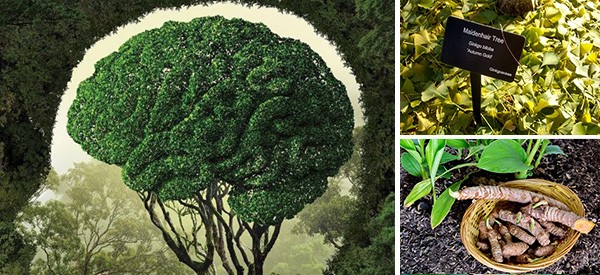
Best Mind Care Remedies for Seniors
As we age it’s important we keep our minds active. This can help prevent diseases like Alzheimer’s, Parkinson and Dementia. But what herbal remedies are available to help improve our neurological function and keep our minds healthy?
I will share five herbs that you can add to your daily routine to help keep your wits sharp and slow the effects of aging on your mind.
Ginkgo Biloba
Ginkgo is associated with Chinese medicine but the tree can be found growing throughout the United States.
One thing ginkgo is associated with is improving memory, alertness, and the ability to focus. It is also thought to help patients suffering from Alzheimer’s and dementia. This could be because of ginkgo’s positive effects on blood flow to the brain. Studies have shown that ginkgo can help increase blood flow to various parts of your body. This can have a positive effect on heart and brain health and lower stroke risk.
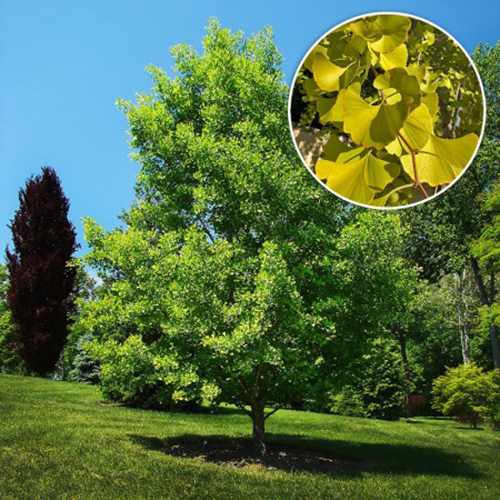
Probably the easiest way to identify ginkgo is by the leaves. The leaves have a distinctive fan shape that is similar to the maidenhair fern and so it is often referred to as the maidenhair tree. Ginkgo is a deciduous tree and in the fall the leaves change to a beautiful yellow.
There are many different ways to consume ginkgo, but most commonly people use the leaves. These can be purchased as supplement in capsule form, drank as a tea, or taken in extract form as a tincture.
Ginkgo Biloba Tincture
You can make a tincture easily in your own home with materials you likely have already.
- 3-4 ounces of yellow ginkgo leaves harvested in fall
- Vodka (or other alcohol at least 80 proof)
- Mason jar
- Coffee filter
- Funnel
- Tinted bottles for storage
Recipe:
- First, crush the leaves to increase the surface area
- Place the crushed leaves in the mason jar

- Cover the leaves with vodka to a minimum of two fingers above the top of the roots. If you are using dry leaves add more vodka as the material will absorb the liquid. Do not exceed double the height of leaves or your tincture will not be as strong.
- Seal the jar and leave it in a cool dark place for at least two weeks
- When your tincture is ready place a coffee filter inside a funnel and strain the liquid into a tinted bottle for storage.
- Store in a cool dark place
Use a little as a few drops to start and no more than a teaspoon daily.
Turmeric
Turmeric (Curcuma longa) is a plant native to the tropics of SE Asia. It is best known for containing curcumin. It is thought that the anti-inflammatory, antioxidant qualities of curcumin are what contribute to turmeric’s over health benefits and benefit your brain.
In the same family as ginger, both are rhizomes, which means that the fleshy rootlike part is what is consumed in foods and medicines.
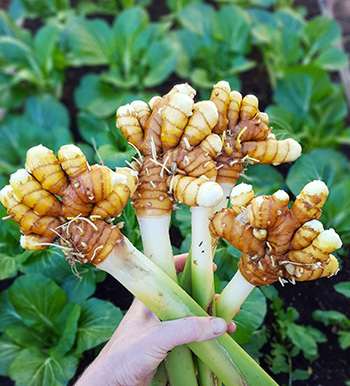
Not a small plant, the leaves can grow to be three feet tall. It produces a lovely flower that is usually a greenish-white color but occasionally is pink.
While turmeric thrives in hot jungle climates don’t despair if you live somewhere that experiences frost. It is possible to grow turmeric at home in a container.
Found in many traditional Indian foods, turmeric is responsible for the distinctive yellow color in curries. What’s great is that no matter how you choose to add turmeric to your diet it will help improve brain function.
Turmeric can be used fresh or dried as a seasoning in foods. Dried it can be ground and put into capsules. It can be used to make teas, turmeric lattes, and golden milk.
Try adding this recipe for Golden Milk to your morning routine.
Golden Milk
- 2 cups of coconut milk (or other non-dairy milk of your choice)
 2 tsp ground turmeric (you can grind the rhizome fresh or dry with a mortar and pestle)
2 tsp ground turmeric (you can grind the rhizome fresh or dry with a mortar and pestle)- 1/4 tsp cayenne pepper
- ½ tsp of cardamom
- ½ tsp of cinnamon
- ¼ tsp of nutmeg
- 1 tsp vanilla
- Pinch of black pepper
- Honey or another natural sweetener
Heat all the ingredients in a saucepan until they are warm. Then transfer the mixture to a blender. Blend until thick and frothy.
Ginseng
Ginseng has been used traditionally in Chinese medicine to help improve mental clarity. Modern studies have shown that ginseng can improve mental clarity, focus, and memory. It is a great herb for brain health and it is why it is being used a lot even in live-in facilities for seniors like Sandra‘s Huusengel.
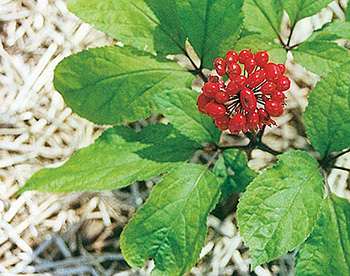
There are two main varieties of Ginseng, American Ginseng (Panax quinquefolius) and Asian ginseng (Panax ginseng). A flowering plant, American ginseng grows wild in deciduous forests in the northeastern US and eastern Canada.
However, high demand has led to over-harvesting and wild ginseng foraging is now heavily regulated.
If you have patience, the plant can also be cultivated in your backyard. While not difficult to grow it takes between five to ten years for ginseng to mature and be harvestable.
Ginseng can be purchased in supplement form or be made into a tea or tincture.
Ginseng Tea
You can make ginseng tea by adding fresh or dried roots to boiling water.
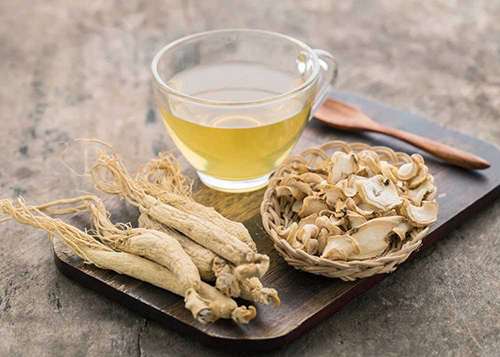
Add ½ – 1 ounce of sliced or grated ginseng to 16 ounces of boiling water. Let steep for 5-10 minutes depending on how strong you want it.
If you don’t want to be making tea all the time, you can also use alcohol to extract the beneficial qualities of ginseng by making a ginseng tincture following the same method used for the ginkgo tincture.
Rosemary
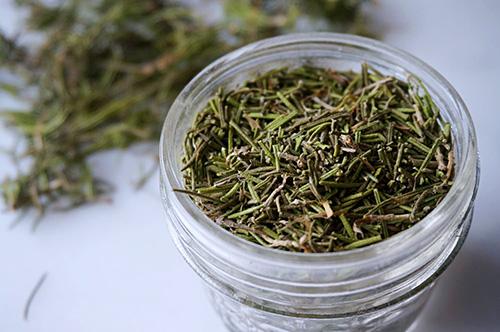
If you are looking for herbs that are a little more common, rosemary, Rosmarinus officinalis, has long been associated with improved memory.
Studies have shown that rosemary can be beneficial can aid people suffering from Alzheimer’s or dementia. Rosemary can be drunk as a refreshing tea or added to your food to enhance flavor.
Related: DIY Rosemary Memory Elixir
Sage
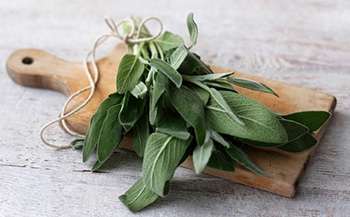
Another common culinary herb that can help improve cognitive and neurological function is sage, Salvia officinalis. Sage can also be consumed as a tea or added to food. It mixes well with poultry, in stuffing, or even in pasta.
Healthy eating can lead to a healthy mind. By adding these herbs to your routine whether in tea, tincture or in your meals you can help ensure that your mind stays healthy and active even as you age.
Remember you are as only as old as you feel.
You may also like:
50 Health Tips Every Person Over 50 Should Know
The 10 Medicinal Seeds You Should Plant for a Complete Backyard Pharmacy (Video)
DIY Arnica Salve For Age Spots
The Secret to Keep Basil Alive Indoors and How to Use It as a Medicine

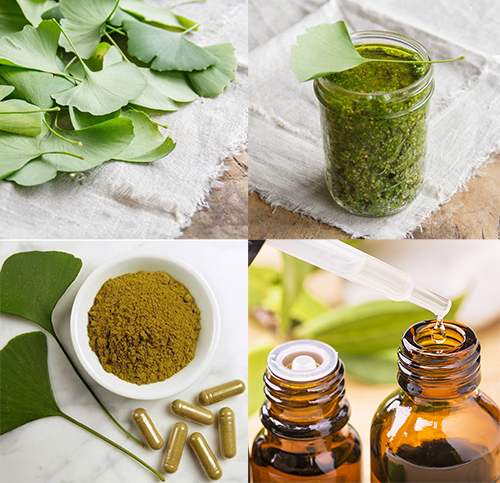
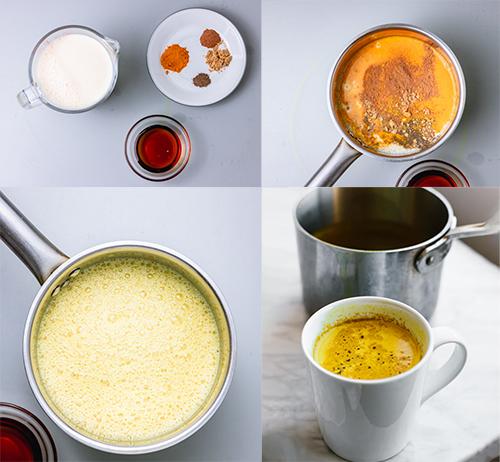 2 tsp ground turmeric (you can grind the rhizome fresh or dry with a mortar and pestle)
2 tsp ground turmeric (you can grind the rhizome fresh or dry with a mortar and pestle)

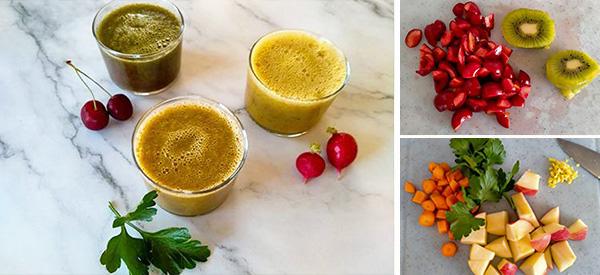
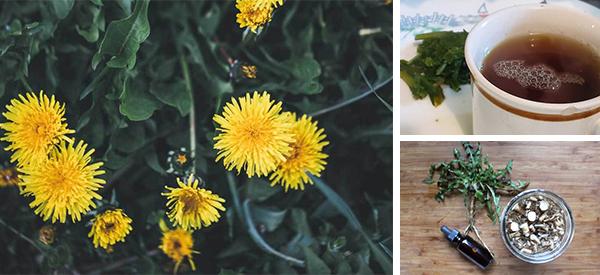
Of all the sites on the internet I find these post to be the most accurate and helpful. Thank you for your research.
Blessings to your team.
Hi Laura,
Thank you so much for your feedback.
We really appreciate it. We are glad to hear you like our website.
God bless!
Thannks
Thank you, your information is always very relevant and well conveyed. I appreciate the time you commit to this.
Hi Kathleen,
Thank you for your comment.
We are glad to hear you found the information relevant and well conveyed.
God bless!
Thank you so much for your postings. We own an organic herb farm and study,sell and use the herbs we grow. knowing something about some of your posting herb but even learning more. This will enable us to keep sharing more herb information with our customers.
Hi Carolyn,
Thank you so much for your comment.
We are glad to hear our posts are helpful for you and your customers.
All the best!
Thank you for all your beautiful information
Thank you for all you do to help us continue being healthy. I have your book. The Lost Book of Herbal Remedies. It is always my first go to.
Hi Joan,
Thank you for purchasing “The Lost Book of Herbal Remedies”.
We are happy to hear that is always the first got to 🙂
God bless!
Wonderful article! I needed this!
I read that Ginkgo can act as a blood thinner is this accurate?
Hi Allie,
Gingko can thin the blood and has fibrinolytic effects. Some studies report that ginkgo extract has similar effects to streptokinase, a drug used to treat blood clots.
Do not take ginkgo along with medications that also slow clotting might increase the chances of bruising and bleeding.
God bless!
I have Parkinson’s,
Parkinson’s (PD); diagnosed in July 7 2010 at age 56, and no known cure. I am trying to use God’s Medicine (herbs) in creation to get my own body to heal itself but will settle for stalling the progression…
Below are 4 herbs listed below that have a direct influence on my Parkinson’s symptoms, based on my experience in “trial and error” testing. All together, I believe that I have stalled the Parkinson’s progression. And it is important to avoid stress and anxiety at all cost!
1. Spirulina; NOW Foods, Certified Organic Spirulina, 500 mg, 500 Tablets.
Dosage: 12 grams, 3X daily (36 grams total, retired, or more up to 50 grams when working.)
Purpose: reduces tremors: increase neural-stem-cells; protect
against the negative influence of TNF…
A NASA Scientist recommends at least 15 grams a day for healthy people.
This brand has more blue of the Blue-Green algae than other brands that I have ordered. The organic tablets has no binders or fillers.
2. Chlorella; NOW foods, Certified Organic Chlorella, 500 mg, 200 Tablets.
Dosage; 2 grams, 3X daily (6 grams total)
Purpose: stops left hand extremely painful spasms…
3. Amla; Paradise Herbs, Amla extract, 60 veg. Capsules
Dosage: 1 capsule, 3X daily
Purpose: reduces tongue and jaw tremor
4. Tribulus; Source Naturals, Tribulus Extract, 750 mg, 60 Tablets.
Dosage: 1 tablet (750 mg), 3X daily
Purpose: reduces inner body tremors; increases levels of natural dopamine.
Of the 4 herbs mentioned above, Spirulina is the most important! Yes you will notice that I take a lot but this is what is required for me to feel normal most of the day. Chlorella is the second most important for me.
I also take the herbs mention on the “Best Mind Care Remedies For Seniors” site as support for my brain and nervous system. But I do not have the bio-feedback with these as I do in my own Parkinson’s trial and error list noted just above.
Sincerely in faith, hope and love…
…hugh
Another one is mushrooms, cultures that eat lots of mushrooms do not get Alzheimer’s, Dementia etc. later in life…
Bunny, can you tell me which mushrooms are best. I am not familiar with mushrooms of any kind. Probably the only ones that I have eaten were the ones that come on pizzas occasionally. Thank you so much.
Glycocalyx shielding (blood brain barrier) goes down from eating to much fructose and sucrose because the human body thinks it’s vitamin C (what makes the shielding in the veins and arteries going to the brain) so bacteria viruses get caught up in the bbb and destroy the brain same goes for CVD and CHD Vitamin K and D cannot get the calcium to the bones and teeth where it belongs eating too much high fructose corn syrup and table sugar is root cause.
“. . Lion’s mane
Regenerates tissues that favor neuronal connections and improves brain function
The action of Lion’s mane is based both on its ability to regenerate myelin and on the regeneration of new synapses thanks to its content in hericenones and erinacines, which act as agents that enhance the nerve growth factor (NGF).
The extract of Lion’s mane promotes the neuronal stability and the normal development of the brain cells without showing toxic effects or damage in these cells.
In some study performed in people with mild cognitive impairment, an improvement in cognitive functions was observed after the ingestion of the lion’s mane. . . .”
Thank You for this article. I also grow Gotu Kola and Brahmi (bacopa monnieri) in pots. I live in Queensland, Australia. I’ve noticed my mind is more alert and my memory has improved.
Maybe I missed it but where or which zone does it grow. I’m in Md zone 6b-7a. Thanks for your article. enjoy reading your info. Pat
Hi Pat,
The medicinal seeds grow well in areas 2-10 as follow:
Plant Name Hardiness Zones
Chicory 2-9
Yarrow 3-9
California Poppy 5-10
Peppermint 3-11
Chamomile 3-9
Evening Primrose 3-11
Meadowsweet 3-9
Echinacea 3-9
Calendula 2-11
Moringa 9-11
Even though Moringa indeed thrives in hardiness zone 9-11, it can totally grow in cold climates and can go through short periods of extremely cold weather.
They go dormant in winters, their leaves shrivel and fall when temperatures drop below 40 F.
They come back to life once again in spring.
God bless!
Another good natural for brain and memory function, I have found, is bacopa monnieri. I was frequently forgetting small things, sometimes day to day or even after an hour, and important things sometimes. Growing it is not an option for me at the moment since I live in a dry region and don’t have the means to set up a micro environment for it. The other herbs you listed are good for my growing setup.